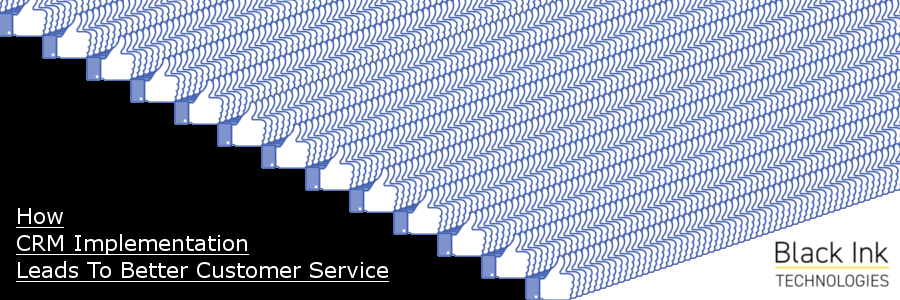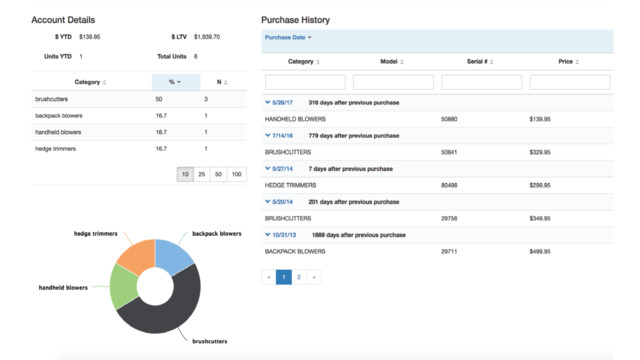How To Achieve Better Customer Service By Implementing A CRM
by Black Ink Team

Imagine that your house has two identical pipes, both of which have an identical leaking problem. Imagine further that you hired two plumbers, who will come on separate days. The first plumber shows up late because they wrote down the appointment time incorrectly, climbs out of their truck with a duffle bag full of random objects, greets you by the wrong name, then says they brought the wrong tools so they must leave and come back. Job length: multiple hours. The second plumber arrives on time, steps out of their truck with a neatly organized toolbox, greets you by your name, then proceeds to get the job done in fifteen minutes.
In this scenario, the second plumber would obviously have been the one who provided better, more satisfying customer service, and the reason is because they were better prepared. They knew when to arrive, whose house it was they were going to, what problem it was that they were hired to fix, and what set of tools they required to do the job.
Plumbers, or any other type of service providers, can have dozens of house visits scheduled every week, just like manufacturers can have dozens if not hundreds of orders being filled a week. Keeping track of all the necessary information for every customer interaction is a ton of work – which is where CRM comes in.
In a CRM, your company can hold every bit of information that its front-line employees will need to satisfy the needs of your customers. Sure, if you do not currently have a CRM, you can say that your front-line employees already have all of that information on hand, because they can execute X, Y, and Z processes to acquire it. But, after you have integrated everything for them by implementing a CRM, they will be able to deal with customer-related issues more smoothly - because finding the right information will be less difficult and time-consuming for them when you have it in a CRM.

This is true whether your company is an OPE distributor, powersports dealer, recreational vehicle manufacturer – no matter what you produce or what services you provide, granting your salespeople the power of CRM will lead to them being able to provide better customer service since it will enhance their ability to “push the right buttons” during sales calls, and also reduce the likelihood that they will ever “drop the ball” (i.e. getting the name of a customer wrong, or sending out the wrong item).
Say for example that you are an OPE distributor, and that you do not currently have a CRM. Instead you have separate databases – one for sales, another for inventory in stock, and another for delivery schedules. Now, whenever someone in your organization gets an order wrong, you must sign into and out of all those systems to fix the problem, and you also might have to sign into and out of all those systems again to “make a note” indicating that you fixed the problem. Having your information “siloed” in distinct databases would be slowing you down, in this scenario, because whenever you would need to update data of different types you would need to switch between separate databases. Not to mention, data may become corrupted or go missing while you are shuffling it back and forth between your isolated systems.
Working with a CRM, you will not have to logout of your sales database to look over your customer database, nor vice versa – all the information you will ever need while sorting out customer-related issues will be in one place. Do not make your customers wait because you have to comb through a filing cabinet, as well as sign into multiple computers, just to find out why their order went missing, or why your service representative never showed up – instead, choose a CRM and start using it. Then, keep doing so.
